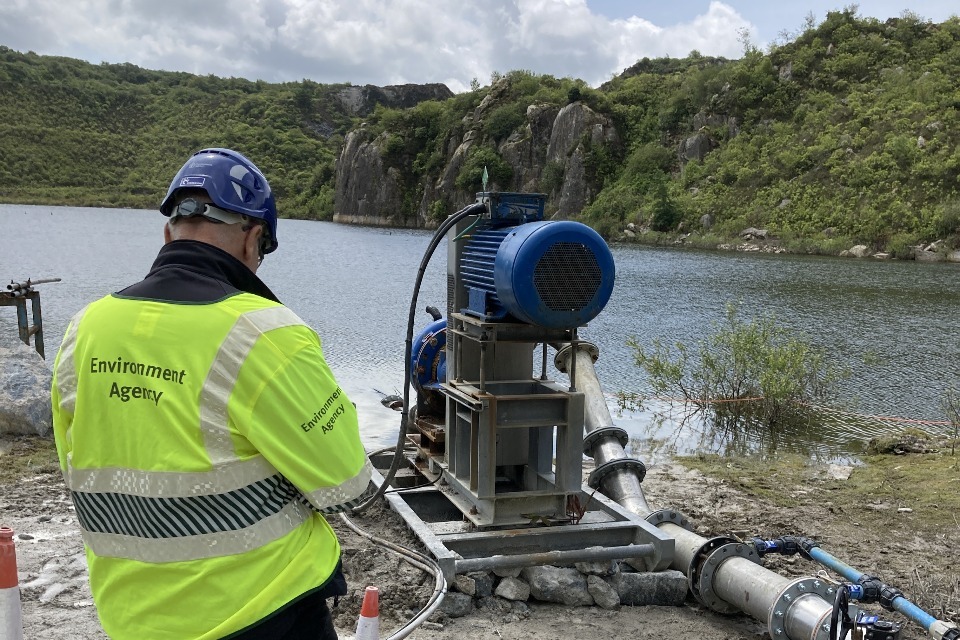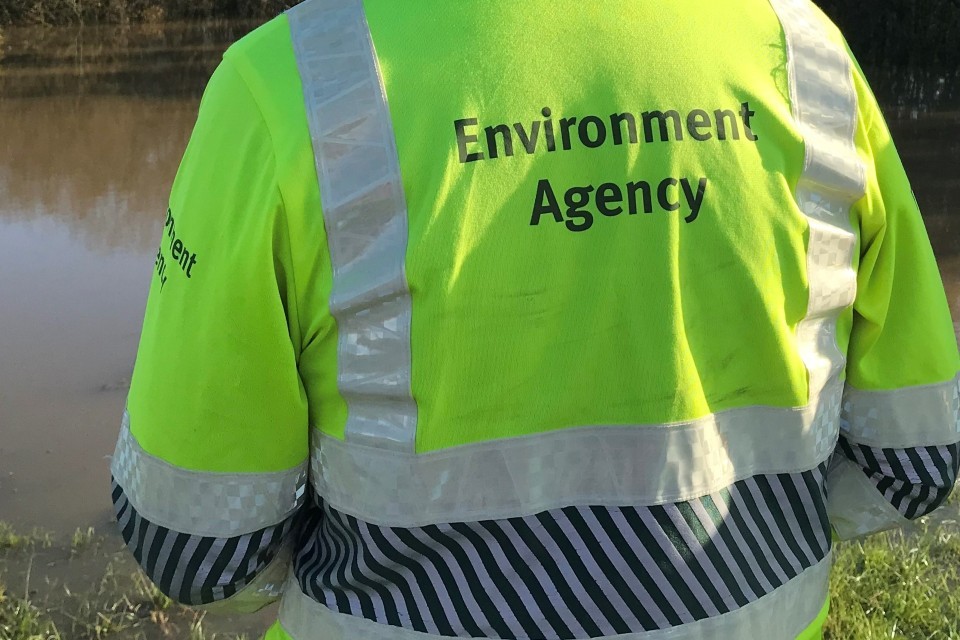Devon and Cornwall’s biggest water users are creating amazing sources of water which benefit the environment and business.
The 2022 drought in Cornwall and parts of Devon reminded everyone that new, smarter ways to use water and reduce demand must be found to adapt to our changing climate.
Arguably the biggest reduction of water use has been made in the counties’ china clay sector, with Environment Agency advice leading to an incredible 99.5% reduction in the amount of water taken from the River Fal.
River Fal water used to pipe wet clay cut by 99.5%
Five years ago, Imerys Minerals abstracted 2 billion litres of water a year from this freshwater river abstraction point, requiring significant pumping costs, to transport wet clay through its pipe network.
Thanks to Environment Agency advice and Imerys’ actions, the firm has saved significant carbon and electricity costs and reduced this abstraction to about 10 million litres per year– less than 1% of its original drain upon freshwater sources.
Instead of a river, the water now comes from the company’s disused china clay pits, so large they are visible on aerial maps – with some nearly rivalling the size of Cornwall’s largest reservoirs. These pits have filled with a mixture of rain and ground water which is now used by the company instead of river water.
Using these water sources also benefits the public’s drinking water supply. Taking and treating groundwater from three former china clay pits helps to supply the water in customers’ taps in Cornwall.
Enough water for 290,000 bathtubs at brassica farm
Farmers are also moving away from river and groundwater abstraction and finding ways to collect their own rainwater. One farm in Cornwall produces 15% of England’s seedlings used to grow brassica vegetables like broccoli, cabbage and cauliflower.
A farm where a surface water reservoir is being built
It relied on multiple abstraction licences for this water-intensive activity. Thanks to Environment Agency advice it has now invested in ways of storing rainwater to grow these brassica seedlings. This includes collecting water from its own polytunnels roofs and creating a clay-lined reservoir which will store 24 million litres of rain water – enough water to fill 290,000 bathtubs.
‘Water is precious’
Clarissa Newell of the Environment Agency said
Water is a precious resource, so it is great to see by-products of Devon and Cornwall’s industrial past being turned into new water sources.
Farmers are also investing in new ways of getting water which will pay them back. This is the way forward.
The two biggest challenges for water are climate change and population growth. Only by finding smart ways to reduce our water demand can we protect the environment and in turn ourselves.
By 2050, the amount of water available could be down by 10-15%, with some rivers seeing 50-80% less water during the summer months. We all need to protect the environment by reducing the amount of water we use and ensuring greater efficiency in its use and re-use.
Climate change will alter the water in our rivers, lakes and groundwater. To protect and enhance the environment, we will need to change how we abstract water. Water companies will need to change their abstractions and will need to find new sources of water.
These alterations, on top of the demands faced by a growing population, and the additional pressures of agricultural pollution, wastewater discharges and urban pollution are all combining to exacerbate water stress.







